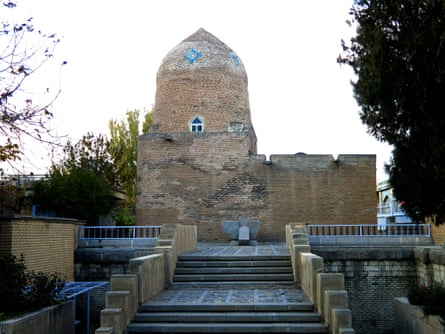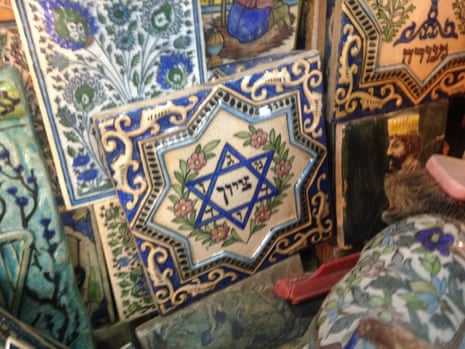As an Iranian Jew raised in Tehran, educated in the United States, and a frequent visitor to Israel, the nuclear deal with the Islamic Republic of Iran has pulled me in different directions.
Like many Iranians, I am thankful that – at least for now – my country of birth will be spared a military attack. As a naturalised American, I am keen to avoid another costly entanglement in the abyss that is called the Middle East.
But as a Jew? This is where my loyalties seem questionable to the large Iranian-American Jewish community, which avidly supports the state of Israel. As a Jew I am expected to condemn any accommodation with a regime that denies the holocaust and routinely calls for the destructıon of the Jewish state. As a Jew I am steadfast in my defence of the country that is resolute in its defence of the Jewish cause.
As a Jew I tread with caution. As an Iranian I march with hope. I understand and appreciate this dichotomy. Being a Jew was never easy in a Muslim country. Like Esther and Mordechai and the feast of Purim, our story has had biblical dimensions of miracles and misfortunes. Iranian Jews were emancipated by Cyrus the Great and alternatively integrated or persecuted by successive Persian dynasties that spanned 2500 years.

But they mostly persevered, adopted the language and the customs, and made indelible contributions to one of the most beautiful cultures in the world. The large Iranian-American Jewish community in the United States, whose population is estimated to be close to 120,000, still speak, read, and write Farsi, celebrate Persian holidays, and reminisce about the “good old days before the revolution”.
But even as they yearn for a free Iran, they do not see themselves as part of its future. Iran is no longer Persian, they say. It has become a strange hybrid Arab country that threatens the existence of Israel. In that vein, any threat, real or perceived, prompts an emotional response in my community on a par with receiving catastrophic news. In fact, any news short of a complete change to liberal democracy is considered unacceptable.
But western-style democracy has eluded Iran for centuries, and the reality is that the nuclear train has already left the station. The best the world can do is to put mechanisms in place that may alter the behaviour of the regime, in the hope of gradual normalisation of relations between Iran and the west. Is it guaranteed? Absolutely not. Is it worth a try? Yes.
Iran is a proud country with a young, sophisticated population that is the most pro-American in the Middle East. According to a report published in 2011 by the Rand Institute, What do Iranians Think, a “substantial” segment of the sampled population expressed support for the reestablishment of ties between the governments of Iran and the United States.
Iranians are also wary of their own status as a pariah nation and blame both their government and the west for their hardships. A continuation of sanctions can have the reverse effect of alienating the pro-American youth while empowering the regime, especially its Revolutionary Guard, which rake in billions in black market deals.
A lifting of sanctions however, pending Tehran’s adherence to the terms of this deal, can potentially pave the way for new channels of communication and cooperation between Iran and the United States. A new opening threatens the very basic tenets of the religious establishment as they have been successful in consolidating their rule in isolation. Their power had gone unchecked exactly because the west (read the United States) shut the door on them and left the regime to its own vices. Considering that Iran has managed to continue and even accelerate its nuclear programme - it now has 19,000 centrifuges - we cannot afford another missed opportunity.
So why am I in favour of the Iran nuclear deal? Because all other viable options seem worse. Because if this deal falls apart, the consensus among the P5+1 countries will also fall apart, as China, Russia, and as we have now seen, the Europeans, will rush to secure trade agreements with Iran. Because a military attack on Iran has to be massive and cannot be contained only to strategic sites, as many nuclear facilities are near population centres and world heritage sites.
Because the Iranian people, as pro-American as they are now, will hate the countries that dropped bombs on them. Because Iran can be an erstwhile ally of the United States in its fight against the Islamic State and in stabilising Iraq, Afghanistan and Syria. Because as a regional power we want the Iranian people on our side. Because after 36 years of heated rhetoric and hostilities it is time to open the door. Iran, Israel and the United States have more in common with each other than they would like to admit. This deal gives this hope a chance. It will also give my Iranian American Jewish identity a welcome respite.
Nazee Moinian is a fellow at the Henry Jackson Society and a former consultant to the Council on Foreign Relations
